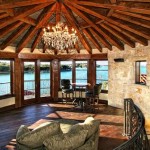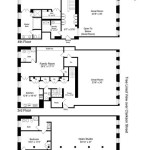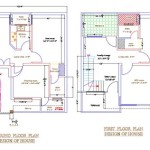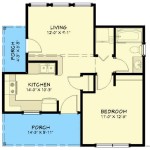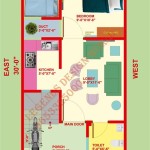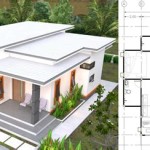Modular Home Floor Plans Georgia
Modular homes offer a compelling alternative to traditional site-built homes in Georgia. With their efficient construction process and customizable designs, they are attracting increasing interest from homebuyers. Understanding the nuances of modular home floor plans available in Georgia is crucial for making informed decisions.
Key Considerations for Choosing a Modular Floor Plan in Georgia
Several factors influence the choice of a modular home floor plan. Climate considerations are important due to Georgia's varied weather patterns. The size and configuration of the lot impact feasible floor plan options. Budgetary constraints play a decisive role as different floor plans come with varying price points. Lifestyle needs, including the number of bedrooms and bathrooms required, also influence floor plan selection. Finally, local regulations and building codes can impact permissible designs.
Popular Modular Home Floor Plans in Georgia
Ranch-style modular homes remain a popular choice in Georgia, offering single-story living and ease of accessibility. Two-story modular homes provide increased living space within a smaller footprint, ideal for growing families or those seeking more privacy. Cape Cod-style modular homes, inspired by New England architecture, offer charm and functionality often featuring dormer windows and steep roofs. Split-level modular homes cater to those seeking distinct living zones, separating public and private areas. Farmhouses, with their open layouts and rustic charm, are gaining in popularity. Finally, modern modular designs with clean lines and contemporary features are appealing to a growing segment of homebuyers.
Customizing Modular Home Floor Plans
One of the significant advantages of modular construction is the ability to customize floor plans. Modifications to existing plans are often possible, allowing adjustments to room sizes, window placements, and other architectural details. Creating entirely bespoke floor plans from scratch provides maximum design flexibility, catering to individual preferences and needs. Collaborating with a modular home builder experienced in custom design is essential for realizing a personalized vision. Flexibility in design allows for incorporating energy-efficient features and accessibility modifications, further enhancing the value and functionality of the home.
Exploring Modular Home Builders in Georgia
Researching reputable modular home builders is essential for a successful building experience. Reviewing portfolios and testimonials provides insights into the builder's design capabilities and customer satisfaction. Comparing pricing and construction timelines helps in making informed choices. Understanding the builder's warranty and after-sales service is crucial for long-term peace of mind. Visiting model homes or completed projects allows potential homeowners to experience the quality and craftsmanship firsthand. Verifying the builder's licensing and insurance ensures compliance with industry standards and regulations.
Benefits of Modular Home Construction in Georgia
Modular homes offer several advantages in the Georgia housing market. Faster construction timelines compared to traditional methods allow homeowners to move in sooner. Cost-effectiveness, due to efficient factory production and reduced material waste, can lead to significant savings. High-quality construction in controlled environments ensures precision and minimizes weather-related delays. Sustainable building practices employed by many modular builders reduce environmental impact. Energy efficiency features available in modular homes contribute to lower utility bills and a smaller carbon footprint.
Financing Options for Modular Homes in Georgia
Securing financing for a modular home involves similar processes to traditional home loans. Mortgage lenders offer various loan products specifically designed for modular homes. Comparing interest rates and loan terms from different lenders is essential to find the most favorable option. Understanding the down payment requirements and closing costs helps in budgeting effectively. Consulting with a mortgage specialist experienced in modular home financing can provide valuable guidance. Government-backed loan programs, such as FHA and VA loans, can be viable options for eligible borrowers.
Finding Land for a Modular Home in Georgia
Locating suitable land for a modular home requires careful consideration. Evaluating lot size, topography, and soil conditions is crucial for ensuring a successful build. Assessing access to utilities, such as water, sewer, and electricity, is essential for planning infrastructure connections. Considering proximity to amenities, schools, and transportation routes impacts lifestyle and convenience. Researching local zoning regulations and building permits helps ensure compliance with local ordinances. Working with a real estate agent specializing in land acquisition can streamline the search process.
Preparing for Modular Home Delivery and Installation
Once the modular home is built, the delivery and installation process requires careful planning. Preparing the site, including foundation work and utility connections, is essential for a smooth installation. Coordinating transportation and logistics with the modular home builder ensures timely delivery of the modules. Hiring experienced contractors for crane operations and module setting is crucial for a safe and efficient installation. Inspecting the modules upon arrival for any damage during transport safeguards against potential issues. Understanding the timeline for final on-site finishing work, including connecting utilities and completing interior finishes, allows for realistic move-in date planning.
Maintaining a Modular Home in Georgia
Maintaining a modular home involves similar practices to traditional homes. Regular inspections of the roof, siding, and foundation help identify and address potential issues. Performing routine maintenance tasks, such as cleaning gutters and servicing HVAC systems, ensures optimal performance and longevity. Adhering to manufacturer recommendations for specific components and materials prolongs their lifespan. Creating a preventative maintenance schedule helps avoid costly repairs and maintains the value of the home. Understanding warranty coverage for different components provides peace of mind in case of unexpected issues.

Mobile And Prefab Homes For Georgia Hartwell Home Mart Floor Plans Modular Building A House

Trimble 32 0 X 76 2280 Sqft Mobile Home Factory Expo Centers

Premium Modular Homes Built To Last Affinity Building Systems

Double Wide Mobile Homes Champion Center

Top 11 Modular Prefab Homebuilders In Georgia Attainable Home

13 Best Modern Modular Home Floor Plans And Layouts Homes Direct

Two Story Modular Manufactured And Home Builder

Premium Modular Homes Built To Last Affinity Building Systems

Two Story Modular Manufactured And Home Builder

Top 11 Modular Prefab Homebuilders In Georgia Attainable Home

